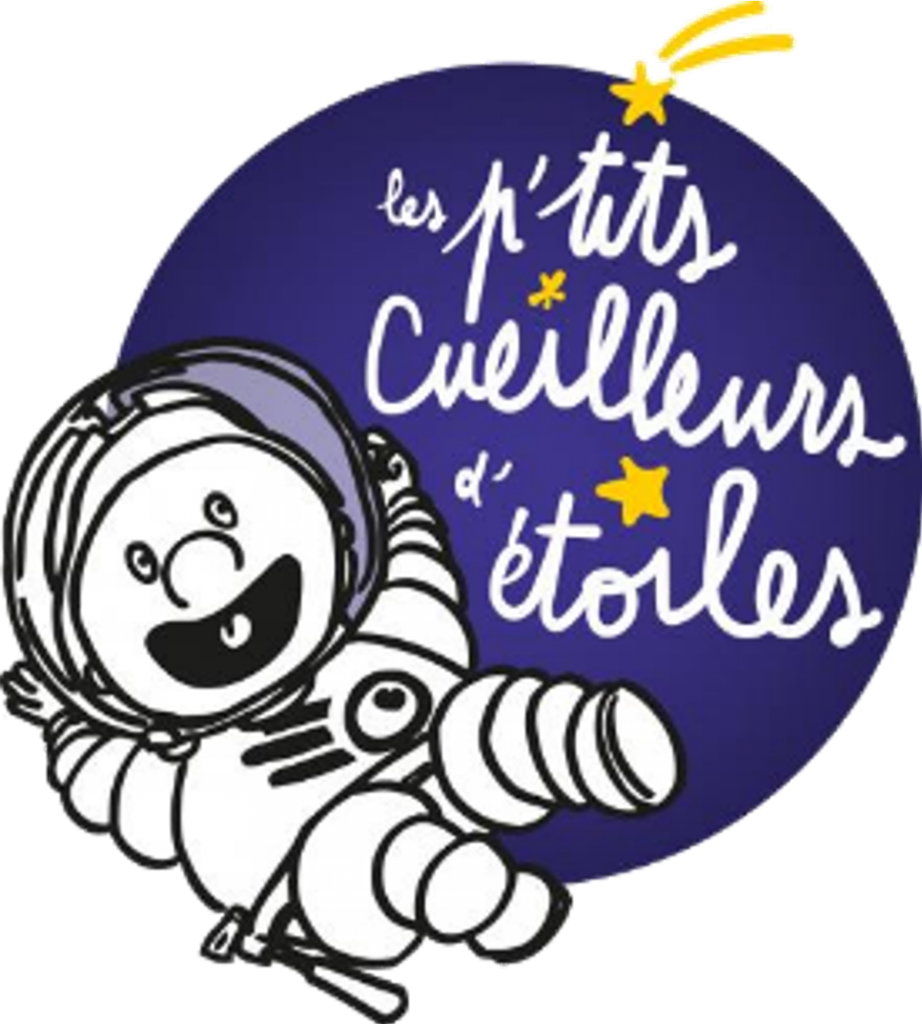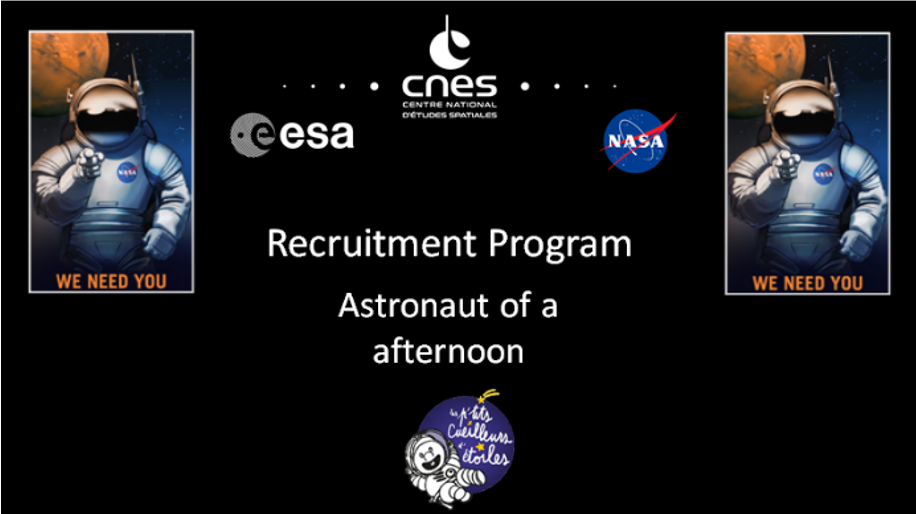Inspiring Stories – Les p’tits cueilleurs d’étoiles
In this EPEC Inspiring Outreach Story, Anthony Guimpier, a PhD. Student at the Laboratoire de Planétologie et Géodynamique, Nantes, France, tells us how he is sharing joy and passion for science among hospitalised children.

“Les p’tits cueilleurs d’étoiles” is an association whose goal is to introduce the world of space and stars to hospitalised children. It is established in several cities in France and calls upon volunteers that include researchers, doctoral students, astronomy professionals and enthusiasts.
I am part of the association based in Nantes at the Laboratoire de Planétologie et Géodynamique (LPG) which is managed by Marion Massé. Our visits take place at the children’s hospital in Nantes on the last Tuesday of each month.
I decided to join this association after I started as a doctoral student at LPG. Marion told me about it during a discussion about my background and hobbies. The idea of sharing our science and making space and planets discoverable to as many people as possible is very important to me, because it not only allows people to escape and dream, but also to understand the world around them.
This interest in communication came to me the year before my PhD. After obtaining my master’s degree in planetology, I worked as a scientific animator at the Cité de l’Espace in Toulouse, which is both a museum and a cultural centre focused on space. During this time, I had to carry out, among other things, animations and guided tours which I really enjoyed.
This is why I wanted to be involved with this association during my PhD research. For me, communication is just as important as research because it shows people, including children, the latest scientific discoveries in the field of space, and allows them to better understand space exploration. Perhaps it might even spark some interest in the children to eventually study space themselves!
In my opinion, this communication is even more important with regard to hospitalised children, because it enables them to get out of their daily routine and think about something else, at least for an afternoon. Seeing their surprised expressions when we tell them anecdotes about the conquest of space, or seeing them marvel at the images and the grandeur of our Solar System is very rewarding, and the children always want to hear more.
The challenge when communicating science, especially to children, is to make the explanations clear and fun such that complicated principles can be understood easily. Some typical examples are: How does the Moon move? And why does it show us the same face? And why do we not observe a solar or lunar eclipse every month? For this we use stuffed planets which allow us to attract the children’s attention and help them visualise the planetary movements in space.
The animations produced by the association change regularly, and deal with themes such as the planets of the solar system, or the life of astronauts in space. To help the children understand what astronauts do, we organised a mini astronaut recruitment programme for the children for one afternoon. The program alternated between games of skill, images, and video. For example, we used a piece of survival blanket to simulate the helmet solar visor of astronauts.

The year 2019 marked the 50th anniversary of the Apollo 11 lunar mission. The association’s animations were therefore mainly focused on the Moon and its exploration. 2020 is the year when martian rovers from ESA, NASA and China will be launched. Undoubtedly, we will therefore be very focused on the red planet!
Website: http://lesptitscueilleursdetoiles.fr/
Do you like this story and want more? Browse our archive of EPEC Inspiring Stories and get inspired!

